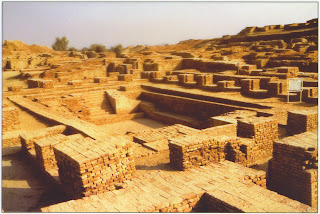1. 10. Arthur Robert Ashe, Jr., the
first black player to win The Wimbledon.
Born to Arthur Ashe Sr. and Mattie
Cordell Cunningham Ashe in Richmond, Virginia, US. Lost his mother at the age
of six. Arthur was first black player to win The Wimbledon (1975), the
Australian Open (1970) and the US Open (1968). He was also the first black
player to get selected for the US Davis cup team in 1963. He remain only black
player to win any Grand Slam singles title, until France’s Yannick Noah won the
French Open in 1983, which Arthur couldn’t win. Ashe died on February 6, 1993,
from HIV AIDS which he contracted during a heart surgery in 1983. He was
posthumously awarded the Presidential Medal of Freedom by President Bill
Clinton in 1993.
2. 9. Dennis Anthony Tito, the first
paying Space Traveler.
Dennis Anthony Tito is the founder
of Wilshire Associates Incorporated. He was former scientist at the NASA Jet
Propulsion Laboratory. He became multimillionaire with the success of his firm
which he founded in 1972 and is the CEO and the Chairmen that in 2001 he became
the first paying space traveler when he flew with a Russian crew abroad the
Soyuz TM-32 to the International Space Station, he spend almost 8 days in the
space station. He paid about $ 20 million for the trip, which was conducted by
Russian Federal Space Agency. He also announced his intension to send a
privately financed spaceflights to Mars by 2018 in February 2013.
3. 8. Italy, first European country to
win FIFA World Cup.
Spain won the FIFA World Cup 2010
held in South Africa and became undisputed champions of world of football. But
do you know which country bought the Football World Cup to Europe for the first
time? It was Italy who won FIFA World Cup in 1934 held in Italy, by defeating
Czechoslovakia by 2 -1 at the extra time in the final. And consecutively they
won the 1938 FIFA World Cup held in France by defeating Hungary 4 – 2. The
Italian National Team lost 10 of their 11 players in the Superga Air Disaster
in 1949.
4. 7. Trygve Halvdan Lie, the first
Secretary General of the United Nations.
Trygve was Norwegian Foreign
minister during the critical years of the Norwegian government in exile in
London (1940 – 1945). After formation of the United Nations in 1945, he served
as the first Secretary General of the United Nations, head of the United
Nations Secretariat, from 1945 to1952, until he resigned from his position. He
was recommended by Soviet Union.
5. 6. Sir Robert Walpole, the first
prime minister of Great Britain.
Sir Robert Walpole was the first
Prime Minister of Great Britain in 1921, although the term Prime Minister was
not use, Actually Walpole became the First Lord of the Treasury in 1921 and
from then he was honored as the First Prime Minister of Great Britain. He held
the position from 1721 to 1742. He is regarded also as the longest served Prime
Minister of Great Britain. He served under two Kings of Great Britain, George I
and his son George II.
6. 5. Viking I, the first spacecraft
successfully land on Mars.
NASA launched two spacecraft,
Viking I and Viking II on August 20, 1975 and September 9, 1975 respectively
and within one year of time, the two spacecraft reached orbit of the Mars.
After taking many pictures of the surface of the Mars by the orbiter, landing
site was selected. The lander then separated from the orbiters which was
attached to each other and then they soft landed. The Viking I lander touched
down on the surface of Mars on July 20, 1976 and become the first spacecraft to
successfully land on Mars while the Viking II landed on the Mars soil on
September 3, 1976. The Viking I held the record for the longest Mars surface
mission until the Opportunity Rover broke the record in 2010.
7. 4. John King, the first European to
cross Australian continent and survive.
When Robert O’Hara Burke and
William John Wills left Melbourne on 20 August 1860 to lead an expedition of 19
men with intention to cross totally unknown the continent of Australia, they
didn’t thought they would die. It had not been explored by non- indigenous
people and was totally unknown to the Europeans. On that mismanaged expedition
only one man returned and he was John King.
John King was found by a relief
expenditure, near to death and bought back to Melbourne, where he got a warm welcome.
8. 3. Lady Gaga, the first person to
pass 20 million followers on Twitter.
Yeah you heard it right! After Akon
convinced his producers to launched Lady Gaga, she became overnight success by her
debut album “The Fame”. She became first person to followed by 20 million
people in August of 2010. The number of her followers doubled in 2013 and
became about 41 million. Don’t count me.
9. 2. Gwendolyn Elizabeth Brooks,
first black to win the Pulitzer Prize for poetry.
Gwendolyn Brooks won the Pulitzer
Prize for her poetry book, Annie Allen in 1950 and became first African
American to win the prize. She was born on 7 June, 1917 in Topeka, Kansas, she
was first child of her parents, who moved to Chicago shortly after her birth.
This poet legend died of cancer at the age of 83 on 3 December, 2000.
10. 1. “Me at the Zoo”, the first ever
video uploaded in YouTube.
Jawed Karim one of the three
cofounders of the most popular video sharing website YouTube. On Saturday, 23
April, 2005 at 8:27 pm. The video was shot at the San Diego Zoo by Yakov
Lapitsksy and is 19 seconds long. The video got about 14 million views and about
Thousand comments. The feature Karim in front of the elephants. Wonder how
YouTube got so famous, because we Indian believe Elephants as God of Luck.
















